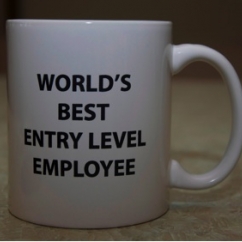Articles and News
BALANCE IS KEY TO MANAGING MILLENNIALS SUCCESSFULLY, BUT DON’T WRITE OFF BOOMERS YET! March 13, 2013 (0 comments)

Merrick, NY—Is your perception of the Millennial generation that they’re a bunch of entitled kids who want a trophy (or promotion) for showing up to work, and are preternaturally attached to their mobile phones?
Not so much, says this blog from glassdoor.com. Millennials are, in fact, willing to work very hard—they just work differently than their more senior predecessors, and understanding those differences is key to having them become highly productive employees.
Millennials are more likely than previous generations to insist on work/life balance. They care about salary and career development but not to the exclusion of everything else. They’re good workers, but not necessarily willing to make work the sole focus of their lives—even with the promise of substantial compensation later, says the blog.
This generation also differs from previous generations in how much it values giving back via the workplace. While they’re not joining the Peace Corps en masse, or even joining local civic organizations in great numbers, they do value companies that make giving back part of the corporate culture.
Millennials do expect everyday efforts and contributions to be recognized—hence the “trophy generation” moniker—whereas older workers simply classified those day-to-day contributions under the heading of “doing my job.” Previous generations expected to be, and were, handed an assignment and left to go execute it. Praise came at the completion of a project well done.
But Millennials expect a much more collaborative experience, where they have a say in the project and access to more senior-level leaders throughout. And yes, lots of recognition at every stage of the project is important to keep them motivated.
Finally, the wired generation that grew up with mobile phones in hand is able to multitask better and expects a different level of workplace flexibility than their predecessors. Older workers may feel “those kids” are demanding when they ask to work from home, or rude when they text during a meeting, but to Millennials it’s not rude, it’s natural.
Being able to understand what motivates a Millennial and also how technology is a natural part of their life is key to successfully recruiting and developing really good future leaders.
Separately, with so much marketing muscle being thrown at the Millennial generation, it’s easy for retailers to forget there’s still a lucrative reward in targeting their parents, aka the Baby Boomers. In this week’s edition of Tuesday Tips & Tricks, marketing expert Ellen Fruchtman writes that Boomers still control the lion’s share of disposable income in the United States. Despite dips in 401K and stock portfolios, this is a generation that grew up shopping till they drop, and they’re not going to stop now, she believes.
Boomers consider themselves far “younger” than their parents were at the same age, and they act and shop accordingly, says Fruchtman. Tempt them with value-add elements that give them an experience (fine dining or travel) or tap into their desire to look and feel youthful (spa or beauty treatment), not a free gift they don’t need.
Boomers may not be as digitally intuitive as their Millennial counterparts, and they do still consume traditional media in greater numbers than Millennials, but don’t for a minute think they’re not wired, she warns. It’s a generation that loves to be connected and participate in online discussion. Facebook is the top digital channel for Boomers, far more than Twitter or LinkedIn, says Fruchtman.
But there's one thing Boomers do very much have in common with Millennial shoppers: altruism. Both generations value a business that gives back, and will be more likely to patronize it than one that doesn't.
Top image: Glassdoor.com







